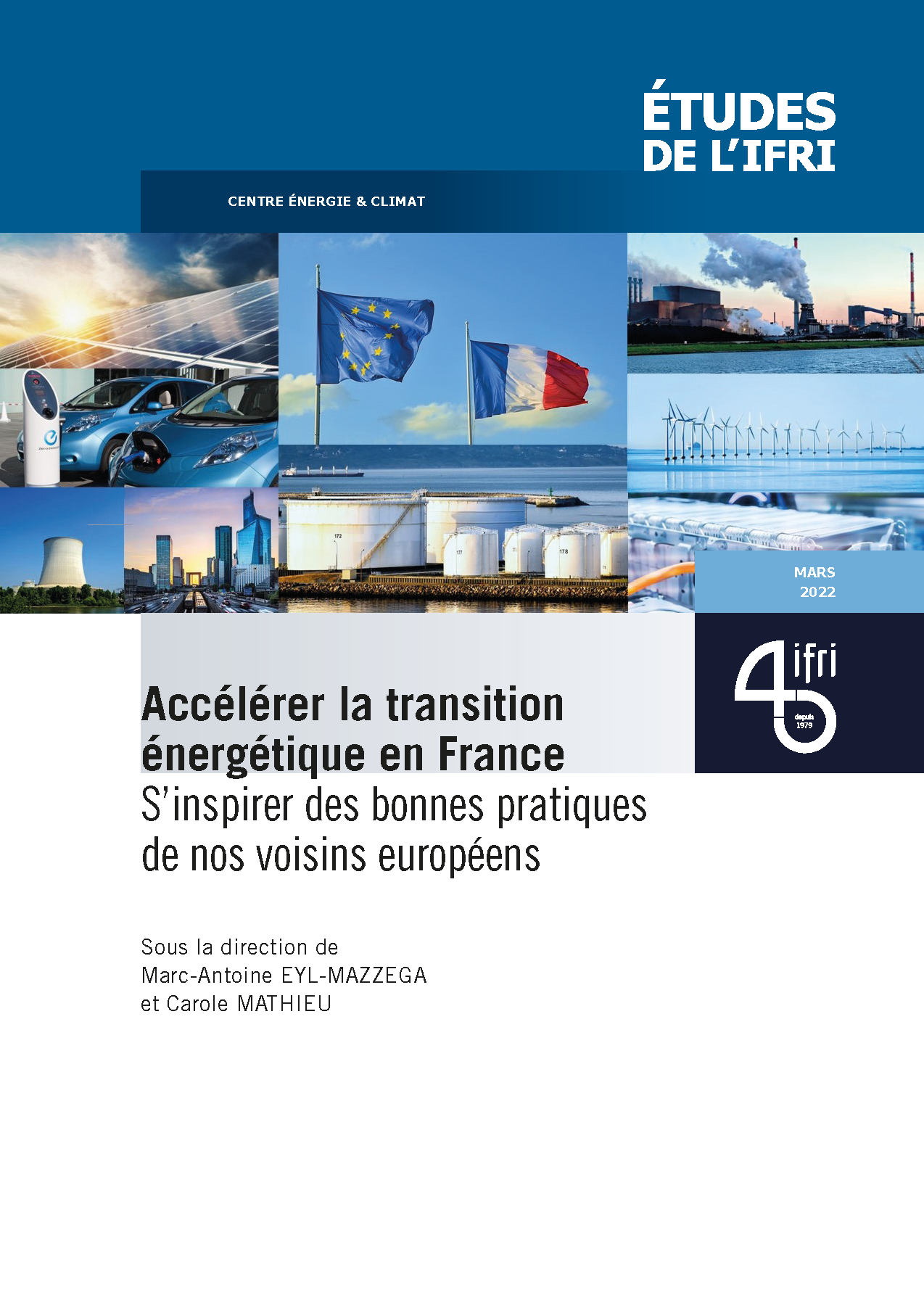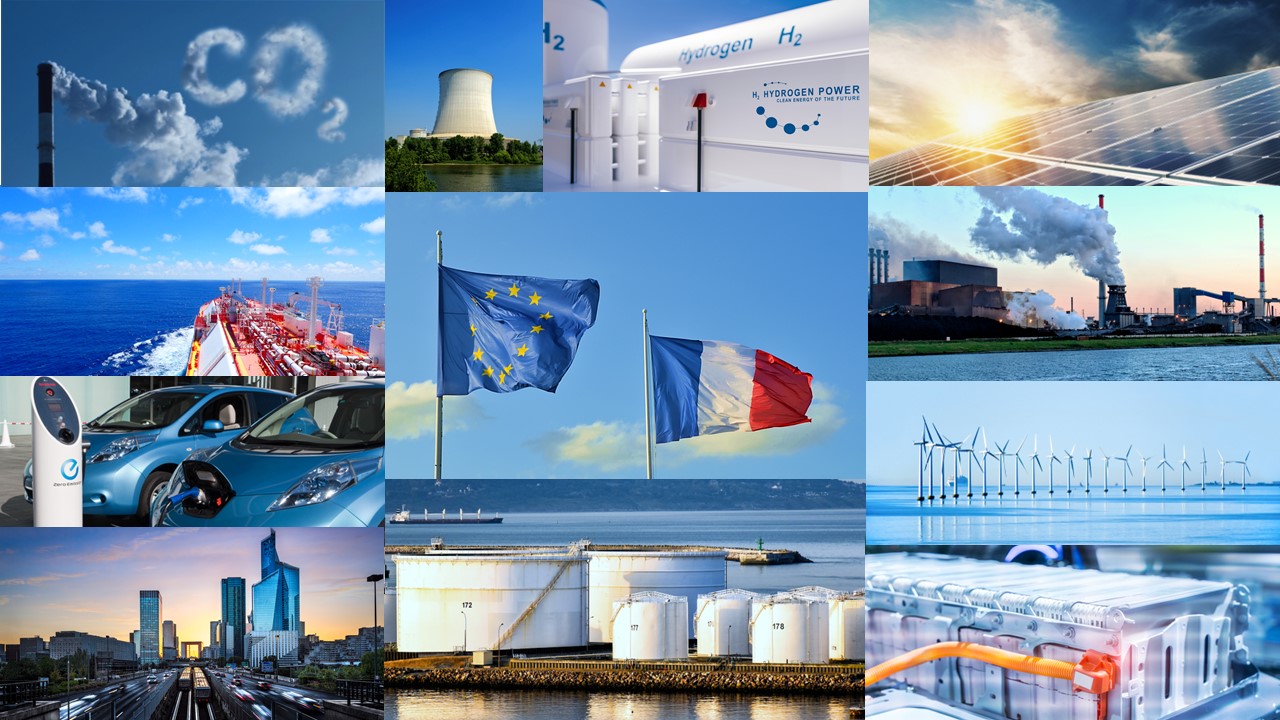Accelerating the energy transition in France: drawing inspiration from best practice in our European neighbours

The success of energy transition is first and foremost a question of good governance, which must be based on expertise and collective deliberation.

Since 2008, the UK has been driving its climate strategy through legally constrained 5-year carbon budgets. These are developed by the Climate Change Committee, which also makes detailed recommendations, sector by sector, for the implementation of corresponding public policies. In order to avoid regulatory instability due to political changes, Denmark relies on national consensus by organising a deliberation and approval of "energy agreements" by the Parliament, based on recommendations proposed by, among others, the Climate and Industry Council. In Finland, a large coordinating ministry has recently been established to develop sectoral decarbonisation plans in consultation with the relevant ministries. The processes for developing these plans are open and inclusive, with preparatory documents and government-commissioned background studies being available and stakeholders encouraged to submit contributions. These plans are then debated in parliament before adoption by the government.
The energy transition is also a challenge in terms of cost effectiveness for public policies, which must trigger a wave of investments in energy efficiency, the production of decarbonised energy, the decarbonisation of transport or the transformation of the productive system in the light of the climate constraint. This concern for optimising public spending led the Netherlands to introduce the SDE++ subsidy mechanism, which puts all technologies in competition with each other on the basis of their ability to reduce greenhouse gas (GHG) emissions at the lowest cost to the community. This one-stop shop allows priority to be given to investment in projects with a strong climate impact, which is currently leading to the rapid development of rooftop solar photovoltaics and CO2 capture and storage technology. In both Denmark and the UK, electrification of uses is the preferred route to decarbonising the economy, harnessing the potential of North Sea wind. Contract for Difference schemes continue to be refined and the UK continues to expand the sector in deep waters with floating wind technology, soon to be developed off the coast of Scotland up to 15 gigawatts (GW). Located at a distance from the coast, the visual impact of these installations is reduced compared to onshore renewable energy production and the acceptability of the projects is also enhanced by the consideration of local economic benefits in the licensing process. For both countries, the next challenge is to integrate these developments into an integrated vision of the energy system, via the introduction of new technological building blocks for energy storage and hydrogen production. The energy island concept, promoted by Denmark, opens up the prospect of covering all national needs from offshore wind power.
Furthermore, the energy transition is an unprecedented industrial challenge that cannot be overcome without a partnership approach between private and public actors. In Denmark, a centre for energy savings has been set up, with the aim of making recommendations to companies to save energy/electricity. In Germany, the Fraunhofer Institute directs its research and innovation programme according to the priorities of public funding and the needs of industry, in order to contribute to the decarbonisation of the energy system of the future and to ensure technological sovereignty. The focus is on solar photovoltaics (PV), in order to develop solutions for every potential production, to develop sustainable manufacturing concepts for PV technologies and to revitalise the German and European industry in the context of weakened supply chains. Sector integration solutions also offer great potential for value creation and technological advancement. In offshore wind, which is a highly specialised sector dominated by a small number of players, the European leader, the UK, also emphasises local content in the selection of project developers. The logic of lowering technological costs is now complemented by a logic of securing the corresponding industrial capacities.
Finally, the state level is not sufficient to cover all the issues associated with the energy transition. In this respect, Finland encourages experimentation at all levels to foster new scientific and normative learning about low-carbon ecosystems. In Italy, the successful sustainable mobility policy of the city of Milan can also serve as an example. It is distinguished by the introduction of an innovative model for charging for the use of urban space which also provides solutions for delivery companies and construction companies, the provision of credible alternatives to the private car, the mobilisation of digital tools and the concomitant deployment of urban requalification operations. Finally, the international level deserves particular attention, as the Danish example shows. On the one hand, it is a question of developing electrical interconnections to strengthen the security of electricity supply, but also of establishing intergovernmental partnerships to promote the complementarity of national energy transition policies and ensure a faster decline in global GHG emissions.
This Study is only available in French
Download the full analysis
This page contains only a summary of our work. If you would like to have access to all the information from our research on the subject, you can download the full version in PDF format.
Accelerating the energy transition in France: drawing inspiration from best practice in our European neighbours









